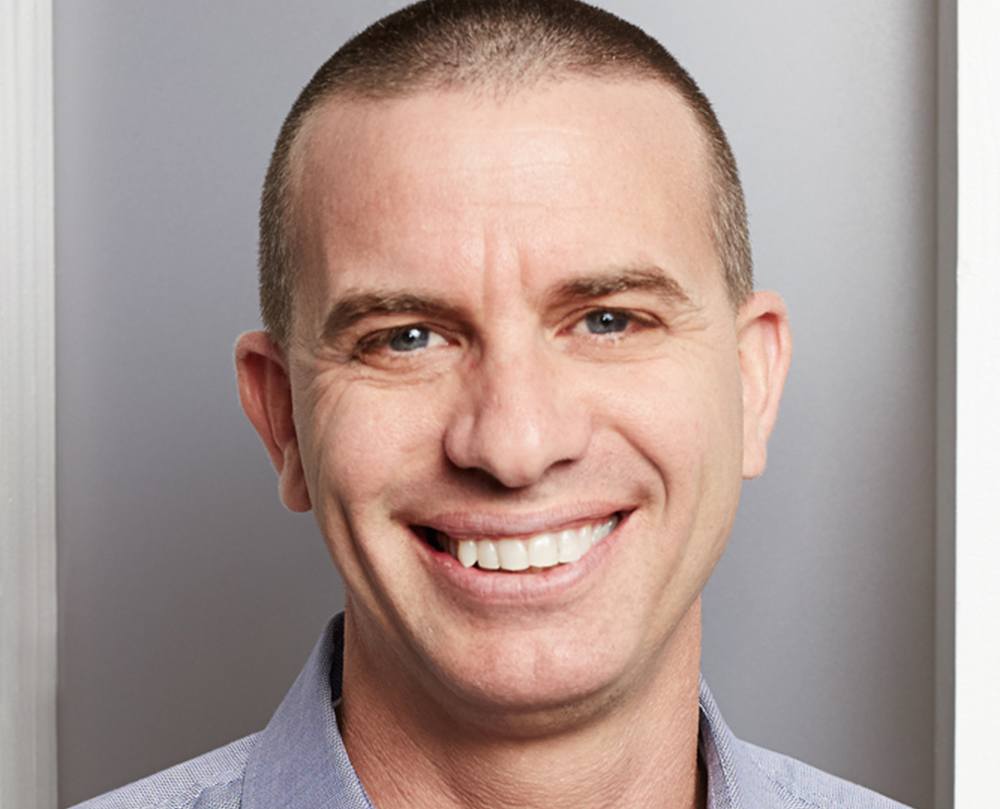My days are intense. But to stay productive, I literally maintain a list of my “top 10 most important things.” Some are more strategic and long-term, and some more tactical and short-term, but I keep it up to date and revisit it often, making daily progress on the most crucial tasks.
Dror Ginzberg is the co-founder and CEO of wochit, a video creation platform and a revolution in short-form video. Launched in 2012, wochit set out to disrupt the traditional video creative production process. It’s working. The company won the Gutenberg Prize as a part of the Tribeca Disruptive Innovation Awards for its technology in the field of journalism and the 2015 Digiday Best Video Technology Innovation Award. Wochit strives to empower every storyteller to harness the power of video. Dror may be found in a wochit office in New York City, London, Tel Aviv, or Los Angeles.
Where did the idea for wochit come from?
It started from a chat I had with a friend about the consumption of textual information on TVs in the age of connected TVs, which we both agreed made no sense. That led to the thought that this textual information could be turned into video. It took about a month to realize that I was onto something much bigger — that storytelling could be visualized in a way like never before.
What does your typical day look like, and how do you make it productive?
My days are intense. But to stay productive, I literally maintain a list of my “top 10 most important things.” Some are more strategic and long-term, and some more tactical and short-term, but I keep it up to date and revisit it often, making daily progress on the most crucial tasks.
How do you bring ideas to life?
The most important thing is to make sure you have a great team. That team should understand the vision and rationale behind your ideas so they can execute well and help improve the ideas. I always make sure we translate ideas into concrete tasks and action items with clear ownership, which can then be tracked regularly for progress.
What’s one trend that really excites you?
I’ve been in the video industry since 1996. It’s always amazing to see different ideas and concepts turn into real-life products, sometimes many years after they were first envisioned. These new innovations always excite me.
What is one habit of yours that makes you more productive as an entrepreneur?
Always cut to the chase, never lose track of the next target, and stay focused on what you need to do to hit it. Fast decision-making is also central to productivity. We all make mistakes, but the most important thing is to identify and fix them as quickly as possible.
What was the worst job you ever had, and what did you learn from it?
I took care of myself financially from the age of 15, taking any job I could. The worst job I had was cleaning the floor of a large club. You learn to earn your way and never be spoiled. You also develop an understanding of people at all levels.
If you were to start again, what would you do differently?
Our research and development team is based in Israel. Israel has amazing tech talent, and I wouldn’t have it any other way. If I were to start again, I would probably build the rest of the team and operate directly from within the market the product serves from day one.
As an entrepreneur, what is the one thing you do over and over and recommend everyone else do?
Always be raising money. On a completely separate note, never take things too seriously. Humor helps keep things in perspective.
What is one strategy that has helped you grow your business?
Building a product my clients really need has helped my business tremendously. We think we know what our clients need, but in many cases, we really don’t. While we do need to come up with ideas they’ve never thought of, we should also listen carefully to their feedback and react quickly. When an initial client says something, it’s noted. When the second says the same thing, it’s a coincidence. When the third also says it, then you know you should build it.
What is one failure you had as an entrepreneur, and how did you overcome it?
I chose the wrong partner in a previous venture. The way to overcome this is to connect with people you know well, but in any event, follow your heart and instincts.
What is one business idea that you’re willing to give away to our readers?
I would love to see software that automates DevOps and optimizes and save costs on Amazon Web Services.
Tell us something about you that very few people know?
I can swing almost any object on almost any of my fingers.
What software and web services do you use? What do you love about them?
I use most Google services as well as Salesforce, LinkedIn, and many more. Google services just get the work done. Salesforce is a necessity. LinkedIn has become a true working tool for many things such as recruiting. Pivotal Tracker is also helpful because it facilitates agile development. I love (most) Apple products and use apps such as Uber to help simplify day-to-day tasks.
What is the one book that you recommend our community should read and why?
“Crossing the Chasm” by Geoffrey Moore. In so many cases, good books don’t necessarily teach you something you didn’t previously know; they just put things into place, organizing knowledge into tactics.
What people have influenced your thinking and might be of interest to others?
Sir Ken Robinson:
Jack Welch: @jack_welch
Connect:
Dror Ginzberg’s LinkedIn:
Dror Ginzberg’s Twitter: @drorgi
Mario Schulzke is the Founder of ideamensch, which he started a decade ago to learn from entrepreneurs and give them a platform for their ideas.

